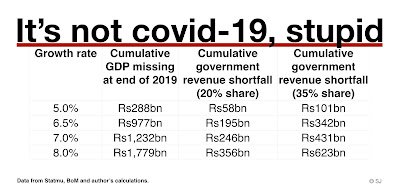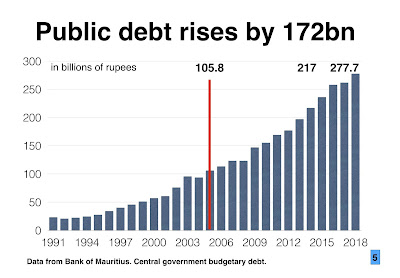Tuesday, December 22, 2020
Remembering the Harvard Psychologist Who Taught Millions Where to Be
Friday, November 27, 2020
Dracula to Vigorously Promote Vegan Diet
He announced this yesterday on a radio program in Transylvania. When asked what prompted such a big change he confessed that he was inspired by Ali Mansoor launching a grassroots movement and George Chung publishing another book. The count who refused to observe social distancing wore a brand new cape and the legendary four-and-half-inch fangs looked sharp as ever. Dracula also mentioned that he had applied for the top job at the National Blood Bank of Transylvania.
Saturday, October 31, 2020
007 Dies Peacefully in Sleep After Living Twice
Tuesday, October 20, 2020
Renga At the Blackboard
To explain the mess proportional representation (PR) would throw Mauritius into after the Labour Party feared that the Governor would impose it. We’re in the first half of 1956 at the Port-Louis theatre or about two years before Seeneevassen passes away, Guy Rozemont had just died and the movement against PR is gaining steam. Dupré, the LP candidate, wins the by-election in the capital with 52% of the votes and this buries PR for good. So writes Sada Reddi in his 2000 biography of Sir Veerasamy Ringadoo, the longest-serving Finance Minster of independent Mauritius, its first President and who would have been 100 today.
SVR has been unjustly painted as an incompetent Finance Minister (FM) of an incompetent government that had brought the country to its knees. The current economic contraction, forty years after the last one and when Ringadoo was Minister of Finance, will likely cast a more objective light on his performance.
Tuesday, September 22, 2020
Doctor Who Gave Elephant Dose to Mosquito Fired
Wednesday, September 9, 2020
Pope’s Warning Turns One
Francis visited us exactly a year today and celebrated a wonderful mass in honour of Father Laval in Port-Louis. Later in the day he told a gathering of the civil society and the authorities to move away from the idolatrous economy we had been worshipping (understand by this speculative FDI, record inequality, national problems not solved, not enough regard for the environment and a degraded public health system because trickle down economics had made government run out of money).
Twelve months later, how much of this common sense has been heeded?
Monday, September 7, 2020
Bizin Deklar Nu System Elektoral Kom En Trezor Nasyonal
Thursday, September 3, 2020
The Only Thing Left For Ramgoolam to Do
He scrapped our progressive and sustainable taxation system in 2006 for an ultra-regressive flat tax which has almost bankrupted Mauritius and created massive inequality.
Tuesday, September 1, 2020
A Grateful Panther
Sunday, August 30, 2020
Three Things to Make National Anthem Ring Truer
1. Outlaw door-to-door religious proselytism. Freedom of religion includes freedom not be regularly harassed by groups of people of varying size trying to convert you. Religious belief should essentially be a private matter and a good indication of the absence of any hidden agendas is religious groups growing at roughly the same rate. This hasn’t been the case. Plus a citizen should not be allowed to change her religion before she’s 21.
2. Freeze foreign real estate speculation. Prices should be determined by local purchasing power of Mauritians, not by those of the wealthiest foreigners. Especially when we have a serious housing problem in the republic. We can add banning deproclamation of public beaches here.
3. Recall elections and a couple of other tools so we can get rid of lousy MPs between general elections and toxic policies before they hurt our country. This will keep politicians on their toes, improving governance.
Sunday, August 23, 2020
How It’s Like When a Journalist Does His Homework
Sunday, July 26, 2020
Bug Kin Eklat Depo Minisyon Pe Dir Mank Lapud Dan Fizi
Tuesday, June 30, 2020
Reds Back on Their Perch After 30 Years
Sunday, June 14, 2020
Toxic Bean-Counter Says Hike of Top Tax Rates Won’t Work
Well if it won’t work it’s kind of useless to ask Minister Padayachy to reconsider this policy decision. Plus passage and other benefits may be made taxable. Besides we can do a little research on how Sweden and other countries collect revenue with tax rates as high as 70% (we might look at our own history too as they were that high at one point in time). For sure I don’t see how two of his colleagues will spend a cute sum of money on air travel especially after Covid-19.
As for the success of his tax reforms he can start by answering two questions. 1. In how many years since 2006 did we get the promised 8% growth (he can tell us about 7% and 6% rates too); and 2. What has been the total impact if any of not reaching that target in terms of GDP and government revenue shortfall?
Saturday, May 30, 2020
Why New York is America’s Covid-19 Epicentre
Sunday, May 24, 2020
Mauritius Should Showcase the Sithanen Flat Tax Hell
Savings Likely to Hit At Least 60-year Low
Tuesday, May 19, 2020
African Countries With the Worst Covid-19 Death Intensity
Mauritius is at number four. We wasted precious time in the beginning when politicians were blurting out a lot of dangerous rubbish. We’ve seen how fundamental a good universal public health system is. We need to seriously upgrade ours. This involves a course correction.
Sunday, May 17, 2020
Why Our Government Hasn’t Been Functioning Properly
Friday, May 15, 2020
Covid-19 Crisis Not Unprecedented
Nope. As the chart shows our GDP contracted by 10% in 1980 after cyclone Claudette visited us in the dying days of 1979. The contraction estimated by the Ministry of Finance for this year is between 7% and 11% so it’s going to be roughly the same. What’s going to be different is that since 2005 government has been working for the 1% while 41 years ago important components were being added to our welfare state helping tens of thousands of us have more meaningful lives.
Thursday, May 14, 2020
African Countries With No Covid-19 Deaths
Wednesday, May 13, 2020
Na Pa Tus Konze Travayer
1. En konpayni pa gayn drwa diman kudme ek guvernman si li pan kup so dividen ek kup depans fla fla. Bizin usi kone komye fwa la pey ek benefis so CEO pli for ki travayer ek pli ti lapey. Ban aksyoner kav reinvesti dan zot konpayni pu kumanse.
2. En konpayni pa gayn drwa met dimun deor brit si li ena rezerv uswa fin fer profi u fin pey ban dividen egzazere ban dernye lane. Li bizin pa gayn drwa met travayer deor apre rod travayer pli bon marse depi lot pei.
3. Guvernman bizin introdwir en wealth tax ek remet taksasyon progresif.
4. Si bizin kup lapey u lavantaz ban travayer bizin fer li de fason progresif. Dimun ki gayn ziska 30,000 par mwa pa gayn kupe e dimun ki gayn 500,000 par mwa u plis kup ant 50% ek 75%.
5. Kansel tu privilez duti-fri pu loto pu prosen sink an.
6. Obliz tablisman plant manze lor zot later ek friz tu proze IRS/RES/PDS.
7. Friz dezyem faz tram ekspres ek pran kas ka don CEB pu li investi masivman dan soler/eolyen pu ki pri kuran vin byin pre a zero.
8. Remet laz retret 60 an kumsa kav angaz plis zen.
Saturday, April 18, 2020
Padayachy’s Obsession With Doing Business Could Prove to Be Politically Fatal
And Padayachy doesn’t talk about the 8% growth required to keep the regressive tax rates at all. He instead shifts our attention to the DB rankings trying to convince us that they are so important that we should aim at a top ten spot – we’re currently at the 13th place – and even a top five position. That would make sense if changes in the DB index were strongly correlated with growth. But as the chart shows they are not. At all. At least for us.
Now that the pandemic is here we’re all seeing how vulnerable the flat tax has made us and how close to bankruptcy our country is.
Monday, April 6, 2020
Monday, March 30, 2020
State Should Tighten Leaky Confinement Fast
How much would a healthy and reasonable pack cost? Given that we’re leaving the lobster thermidor out am guessing Rs1,500 to Rs2,000 should do the trick. So in all we’re talking around Rs850m here. Pretty cheap to help stem the infection and delay or avoid the collapse of our public health system. And this will be financed by more sustainable tax rates.
Thursday, March 26, 2020
Saturday, March 21, 2020
Covid-19 Damage Across Africa Not Uniform
Thursday, March 19, 2020
An Open Letter to Minister Dookun-Luchoomun
I read with interest on March 17th that your Ministry had made provisions for schooling for grades 7 to 9 to continue online using 994 videos and 70 questionnaires through the student support programme (SSP) should Covid-19 force us to shutdown schools.
As we already have our first three cases of that virus I am guessing the SSP will be extended to the other grades of the secondary curriculum. Considering that there might not be a lot of good news* coming our way for the next little while and that students could be at home for weeks if not months I would like to make an appeal that you allow all the students who didn’t get 5 credits at the SC level recently to go through into Lower 6 – which for now will be their homes – and have access to the relevant parts of the SSP. This will help soften the blow of the pandemic.
Thank you.
Best,
Sanjay Jagatsingh
*What Covid-19 Will Do to Mauritius, S. Jagatsingh, March 2020.
Tuesday, February 25, 2020
How Will You Use Your Free Electricity?
This will require that we tweak our weather reports so they inform us of the expected daily electricity production and its cost which will in turn determine for example when we wash one or two extra loads of clothes and run our businesses a bit more intensively. Other countries like Germany and the UK are already there. We should too. To crawl back from the deep mess we’re in. And not waste another five years.
References
1. Prices Go Negative in Germany, a Positive for Energy Users, New York Times, December 25, 2017.
2. Government Programme 2020-24, Comments, S. Jagatsingh, Forthcoming, 2020.











